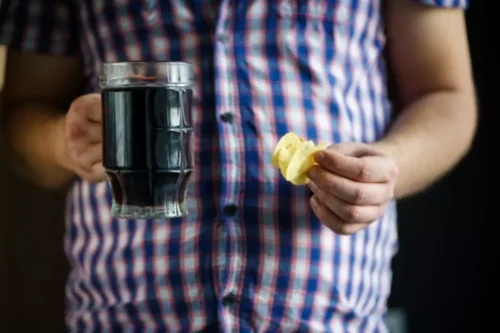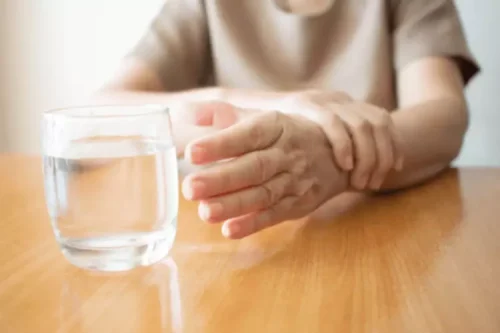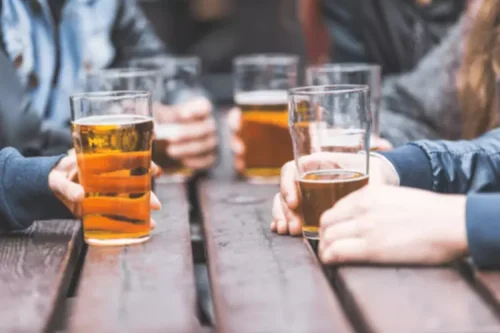
Our findings suggest that high rates of aggression during intoxication are an extension of a life-long pattern of impulsive, violent aggression, rather than a special form of aggression. This finding is similar to what has been found among men and nonhuman primates with low CSF 5–HIAA concentrations. These studies show that impulsive, severe aggression, but not controlled or competitive aggression, is correlated with diminished serotonin functioning (Coccaro 1989; Higley et al. 1996b; Linnoila et al. 1983). It is noteworthy that in a study of men selected at random from the general population, reducing circulating levels of the serotonin precursor tryptophan augmented rates of alcohol-induced aggression, particularly under conditions of provocation (Pihl et al. 1995). Although it is widely believed that aggression and alcohol use are strongly related, most people who consume alcohol do so without acting aggressively.
J. Stud.Alcohol Drugs
- Although conclusions may be somewhat preliminary, recent studies indicate that early adverse experiences may affect human as well as nonhuman-primate CNS serotonin functioning.
- Specifically, it found that problematic drinkers may be more likely to attend to aggressogenic stimuli while intoxicated, and that is, they were more likely to experience certain cues as aggressive.
- For example, researchers often assess the activity of brain chemicals (i.e., neurotransmitters) by taking samples of the fluid that bathes the brain and spinal cord (i.e., cerebrospinal fluid [CSF]).
- These studies show that impulsive, severe aggression, but not controlled or competitive aggression, is correlated with diminished serotonin functioning (Coccaro 1989; Higley et al. 1996b; Linnoila et al. 1983).
- In the group of individuals receiving treatment, the percentage of alcohol-dependent patients who perpetrated domestic violence fell from 56% before treatment to 25% one year after treatment.
Upon arrival to the laboratory, participants were seated along with two confederates of the study. These confederates served as the ostensible participants and “competitors” in the ostracism and aggression tasks, respectively. Maladaptive reasons for drinking, such as drinking as a coping mechanism (e18), and the assumption that aggression is an acceptable form of social interaction (e19), also play a major role. People can survive alcohol poisoning if they receive appropriate treatment.

How is Alcohol Intoxication Diagnosed?
Further studies are needed in order to clarify why some people become aggressive when under the influence of alcohol and others do not. For example, there is evidence that high levels of impulsiveness (24, 25) and low stress tolerance (26, 27) can reinforce the inclination to behave aggressively when under the influence of alcohol. Individuals who find it difficult to inhibit their behavior and delay gratification and who have problems enduring unpleasant feelings seem to become aggressive more frequently after consuming alcohol.
Interpersonal Violence and Illicit Drug Use
Some studies of nonhuman primates have shown that alcohol increases the probability of aggression in some individuals (Winslow and Miczek 1988). Evidence shows that alcohol is more likely to increase aggression in subjects with impaired CNS serotonin functioning. For example, we found that CSF 5–HIAA concentrations were negatively correlated with high ratings for lifetime aggressiveness (Doudet et al. 1995)—that is, animals with low CSF 5–HIAA concentrations were more likely to act aggressively throughout life. Similarly, administration of the serotonin precursor tryptophan blocks self-aggression in primates prone to self-abuse (Weld et al. 1999). Our laboratory has recently used a nonhuman-primate model to investigate individual differences in the effects of alcohol on aggression.

After reviewing such findings, Linnoila and colleagues (1994) concluded that excessive alcohol intake and violence in type II alcoholics may both originate from dysfunctional impulse control, which in turn results from impaired serotonin functioning. Ostracism – being ignored and excluded – is a painful experience that generates impulses to engage in behaviors that serve to cope stages of alcohol poisoning with the resulting distress. For some, that may include behaviors that can promote re-inclusion (e.g., Carter‐Sowell et al., 2008); for others it may include aggression (Warburton et al., 2006); and for others, self-medication with alcohol (e.g., Rabinovitz, 2014). However, less is known about what role acute alcohol intoxication may play in a person’s response to ostracism.
- Some states have higher penalties for people who drive with high BAC (0.15 to 0.20 or above) due to the increased risk of fatal accidents.
- Moreover, high alcohol consumption by couples was predictive of future acts of violence by the male partner (Quigley and Leonard 2000).
- Not all of these need to be present to seek medical attention, but if you suspect that someone’s intoxication has reached the point of alcohol poisoning, do not hesitate to bring them to the emergency room immediately.
The blood-brain barrier (BBB) is freely permeable to alcohol; when alcohol appears in the blood, it readily crosses the BBB. Approximately 95 percent of the ingested alcohol is enzymatically metabolized; the other 5% is excreted unchanged mainly through the lungs. The average person metabolizes 6–8 g of 100% alcohol per hour (Julien, 2001b). At Casa Palmera, our goal is to aid you in a comprehensive spiritual, physical, and emotional recovery. We offer treatment for chemical dependencies such as cocaine addiction, drug addiction and alcoholism.

These symptoms often occur in stages, depending on how intoxicated a person is. The table below shows common symptoms at each level of alcohol intoxication. The symptoms of alcohol intoxication range from mild to severe, depending on how much alcohol a person consumes and how quickly their body metabolizes it. At this stage of intoxication, the person’s behavior will be normal with no visible signs of intoxication, such as slurred speech or delayed reaction time. But in some cases, people with this condition might have accidentally or intentionally drank household products containing alcohol, such as mouthwash or vanilla extract. It is a temporary condition that comes with both physical and behavioral changes.
Negotiating domestic violence: Police, criminal justice and victims
In the United States, people caught driving with a BAC of 0.08% or higher are arrested for driving under the influence. The goal of outpatient treatment is to provide therapy, education, and support in a flexible environment. PHPs accept new patients as well as people who have completed an inpatient program of 1 to 2 weeks but still need focused recovery care. You’ll live in safe, substance-free housing and have access to professional medical monitoring.


The novel design of our study allowed participants the opportunity to aggress toward one of their ostracizers. However, it is possible that aggression toward a non-ostracizer may also function similarly and should be explored in future research. While placebo-controlled experimental studies clearly showed a causal link between alcohol and aggression, it is evident that such a link has not yet been established for cocaine and amphetamines. In case of alcohol, it is clear that there are various individual and contextual factors that may contribute to the occurrence of an aggressive act during intoxication. A clear threshold blood alcohol concentration has not been defined yet for alcohol, but a statistically significant increase of aggression has been demonstrated at a dose of 0.75 g/kg and higher.
Psychology of Addictive Behaviors
Their motor responses and gag reflexes are nonfunctional, and their body temperature drops. If a person has generally consumed two to three drinks as a man or one to two drinks as a woman in an hour, they’ll enter the euphoric stage of intoxication. The following are some signs that an individual may be experiencing critical alcohol poisoning and need immediate medical attention.
